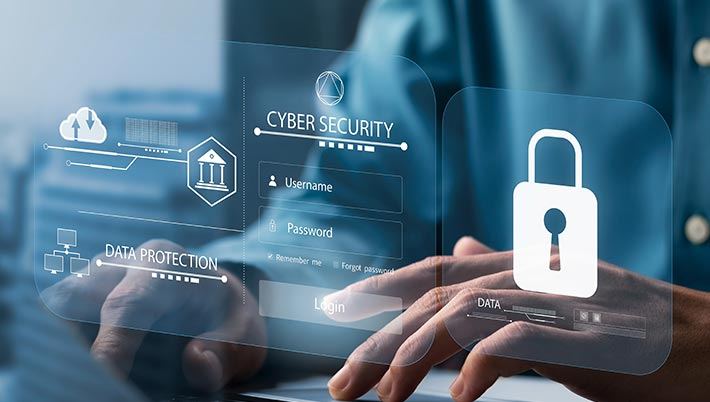The casino industry is known for its glitz, glamour, and life-changing wins. Much of the casino industry is now online but both retail and online casinos are big targets for cybercriminals who seek to cash in on casino lapses in security. The industry has become increasingly focused on ensuring robust cybersecurity measures so that gamers can play the casino’s best online slots and other casino games safely.
What are some of the challenges that the casino industry faces today? And what kinds of cybersecurity strategies are being employed to protect against cyber threats?
Cybersecurity Landscape
The casino industry is built on transfers of large sums of money – both money that flows into the casino and money that is paid out to game winners. That means that cybercriminals see multiple opportunities every minute to steal some of those funds. Cyberthreats to the casinos include:
- Data breaches -- The casino industry stores vast amounts of sensitive customer information, from personal details to financial records. A hacker who is able to access that data can perpetuate huge damages via identity theft and financial fraud.
- Ransomware – if a hacker manages to infiltrate a casino system s/he can lock it down with ransomware and demand a hefty ransom from the casino to restore access. This disrupts operations and can lead to significant financial losses.
- Insider threats – insider threats, both accidental or intentional, is a cause for concern to casinos. An employee who has access to sensitive data can allow others access which leads to data leaks or breaches as well as attacks that target customer accounts, payment systems, and gaming algorithms.
- Vulnerabilities with the Internet of Things -- IoT electronic gaming machines can be exploited if they are not properly secured.
Cybersecurity
Casinos today, both online and brick-and-mortar, can’t function without employing advanced cybersecurity measures. These measures include:
- Encryption -- Casinos employ strong encryption protocols, including 128-Bit SSL encryption, to protect casino transactions. These include both data in transit and at rest. The casino’s goal is to ensure that customer information remains confidential.
- Security Awareness Training sessions for employees who are taught to recognize and respond to potential threats, rebuff attempts to use them to infiltrate systems, etc
- Intrusion Prevention Systems (IPS) and Intrusion Detection Systems (IDS) that monitor network traffic, identify and proactively mitigate threats for an additional layer of security
- Access Control that limits the number and level of individuals who can access sensitive data and systems.
- Regular security audits to identify and address vulnerabilities in casino systems
- Real-time monitoring of network and system activity to immediately identify threat detection and response
- Implementation of Incident Response Protocols so that the casino can react immediately and effectively in the event of a security breach
- Collaboration with regulators to ensure compliance with cybersecurity regulations and standards.
Cybersecurity Framework
One example of how casinos are responding to cybersecurity threats in an organized fashion can be seen through the NIST Cybersecurity Framework which is a framework developed by the US Department of Commerce’s National Institute of Standards and Technology. This is a five-step system that businesses can use to defend and protect their information security systems. The framework includes actions to identify, protect, detect, respond and recover in the event of a cybersecurity attack.
Using the NIST model, casinos must first identify all devices, data and accounts that need to be monitored and protected. This includes the wifi network and VPN, the account credentials, the cloud storage, the equipment (hardware, software, routers, smartphones and POS systems).
The next step involves a multifaceted approach to defend against cyber threats by appointing a staffer(s) to direct all cybersecurity initiatives, installing antivirus software, host-based firewalls and full-disk encryption, creating strong passwords for all devices and accounts (to be updated every 6 months), and limiting system and network access to authorized staff. Regular security audits are performed and all critical assets are backed up. Customer access is through multi-factor authentication and payment processors are secure.
The first line of defense against cyberattacks involves detection. This involves constantly monitoring network systems, and identifying any unusual or suspicious activity (unknown login attempts, strange file transfers, strange movement of data, etc) which demands immediate reporting and investigation.
If such a breach is detected, response protocols should include the identification of systems or data that have been compromised, confirmation of the type of attack, information shared with the network, isolating system of application that may have been attacked and have an IT pro check for backdoors that the hacker may have set up to allow him/her to retain access in the future.
Then, identify the danger and start the recovery phase by informing both law enforcement and customers for transparency and trust-building.
Future
As hackers become more inventive and advance technologically, the casino industry is challenged to do the same. Industry insiders say that in the future, we can expect to see the casino industry bolstering its cybersecurity with artificial intelligence and machine learning that will be better able to detect and prevent cyber threats more effectively through the identification of abnormal behavior patterns.
The increased reliance on blockchain technology will also enhance the security of player identities and financial transactions.
Finally, as the industry learned to collaborate more closely with government agencies, other sectors and with each other, they’ll be better able to protect their data by sharing threat intelligence and best practices.

